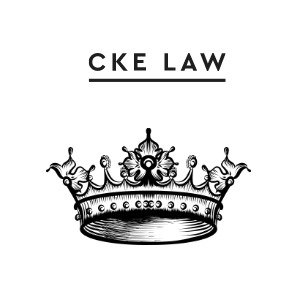Best Creditor Lawyers in Manchester
Share your needs with us, get contacted by law firms.
Free. Takes 2 min.
List of the best lawyers in Manchester, United Kingdom
About Creditor Law in Manchester, United Kingdom
Creditor law in Manchester is a subset of the larger UK financial and insolvency law that focuses on matters relating to debt and creditors' rights. These laws aim to ensure fairness and transparency between creditors and debtors and are combined with insolvency legislation. In Manchester, like in other parts of the UK, creditor laws protect rights of creditors allowing them to claim unpaid debts, resolve debt disputes, repossess goods from defaulting debtors, and even initiate winding-up proceedings in line with the UK insolvency laws.
Why You May Need a Lawyer
Having an experienced lawyer is vital if you are a business engaged in lending money and other assets or an individual creditor. You'll require legal assistance in drafting comprehensive and legally binding credit agreements, executing orders of the court relating to debts, guidance through bankruptcy declarations, settling debt disputes and providing advice on how to exercise your rights as a creditor. Additionally, if a debtor with whom you have an agreement goes into liquidation or insolvency, a lawyer can guide you in the process to safeguard your rights.
Local Laws Overview
Creditor law in Manchester is governed by the UK's national statutes, specifically the Insolvency Act 1986 and the Consumer Credit Act 1974. The former regulates matters concerning business insolvency and bankruptcy, while the latter deals with individual consumer credit protection. Local businesses must also comply with the Late Payment of Commercial Debts (Interest) Act 1998, which allows creditors to charge interest on overdue commercial debts. Furthermore, certain specific industry regulations may apply, depending on the nature of your credit provision business.
Frequently Asked Questions
1. What do I do if a debtor refuses to pay?
If a debtor refuses to pay, you can seek legal action which can range from mediation, going through the small claims court for employment-related debts, or even forcing the individual into bankruptcy or the company into liquidation.
2. How can I protect my rights as a creditor?
By having comprehensive and clear credit agreements, keeping accurate records, and taking swift action when defaults occur, you can better protect your position as a creditor. Legal counsel can further guide and support in protection of your rights.
3. Can I charge interest on late payments?
Yes. Under the Late Payment of Commercial Debts (Interest) Act 1998, you can charge interest on late commercial payments.
4. What happens if a debtor files for bankruptcy?
Your actions are significantly limited when a debtor files for bankruptcy. You won’t be able to take enforcement action without the court’s permission. Instead, you may be able to make a claim through the insolvency practitioner handling the debtor's bankruptcy process.
5. Can a creditor force a company into liquidation?
Under certain conditions, yes. Known as 'winding up' a company, this is a serious step and involves court proceedings. It should only be considered when other debt recovery options have been exhausted.
Additional Resources
The Financial Conduct Authority (FCA) is a key regulatory body overseeing creditor laws in the UK. The Insolvency Service and the UK Government’s official website can also provide guidance on creditor rights and legislation. For local advice, Manchester City Council offers business support services that can provide initial help regarding creditor law.
Next Steps
If you need legal assistance relating to creditor law in Manchester, your first step should be to consult with a legal professional, preferably with experience in creditor rights and insolvency law. They can provide personalised advice depending on your specific situation. Remember to bring all relevant documentation pertaining to your case during this consultation.
Lawzana helps you find the best lawyers and law firms in Manchester through a curated and pre-screened list of qualified legal professionals. Our platform offers rankings and detailed profiles of attorneys and law firms, allowing you to compare based on practice areas, including Creditor, experience, and client feedback.
Each profile includes a description of the firm's areas of practice, client reviews, team members and partners, year of establishment, spoken languages, office locations, contact information, social media presence, and any published articles or resources. Most firms on our platform speak English and are experienced in both local and international legal matters.
Get a quote from top-rated law firms in Manchester, United Kingdom — quickly, securely, and without unnecessary hassle.
Disclaimer:
The information provided on this page is for general informational purposes only and does not constitute legal advice. While we strive to ensure the accuracy and relevance of the content, legal information may change over time, and interpretations of the law can vary. You should always consult with a qualified legal professional for advice specific to your situation.
We disclaim all liability for actions taken or not taken based on the content of this page. If you believe any information is incorrect or outdated, please contact us, and we will review and update it where appropriate.









